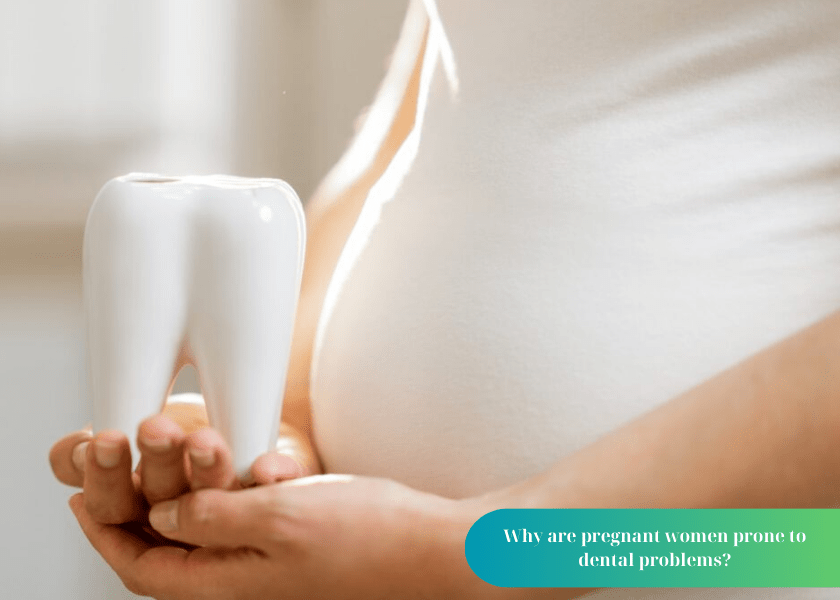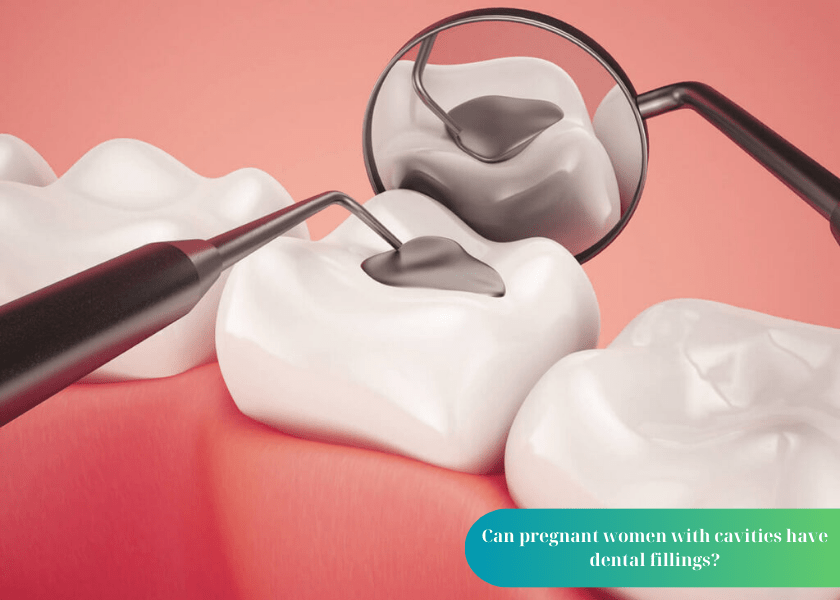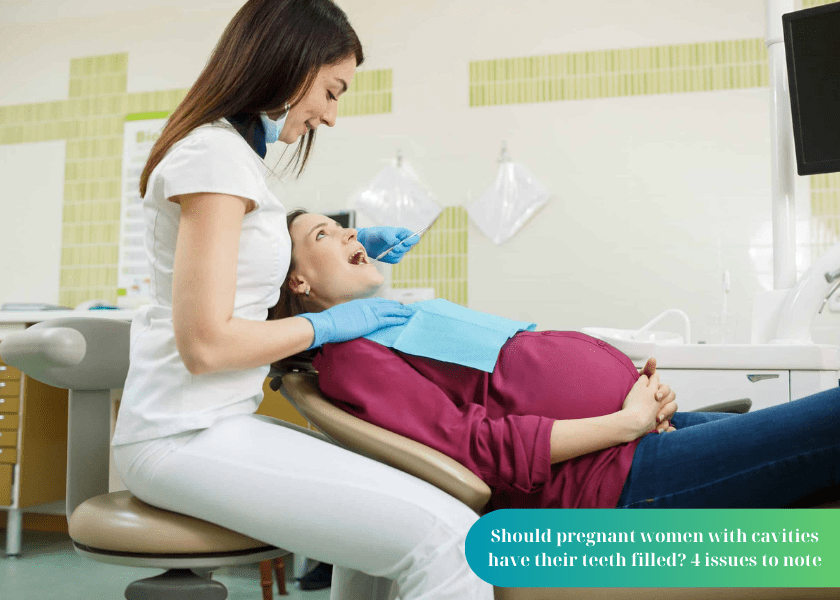Should pregnant women with cavities have their teeth filled? Pregnant women are susceptible to oral diseases, typically tooth decay. However, pregnant women need to be careful and minimize the impact during pregnancy so as not to affect the fetus. So what should pregnant women with cavities do? Can pregnant women with cavities be treated? And what should they pay attention to? Let’s find out with BeamDental through the article above!
Tư vấn chuyên môn bài viết:
BÁC SĨ DƯƠNG THỊ THÙY NGA
Why are pregnant women prone to dental problems?

Pregnant women need to be cared for because any impact, whether small or large, will still be bad for the health of the mother and baby. Therefore, pregnant women should not forget to have regular dental check-ups, because during this time, the amount of hormones including Estrogen and Progesterone in some pregnant women will increase very high to promote blood circulation to quickly transfer water to the gums and mouth. This makes the gum area very swollen because the body is sensitive to many chemicals, increasing plaque growth.
In addition, the amount of calcium in pregnant women is also affected. While calcium plays an important role in making teeth stronger than ever, the amount of calcium in the body of pregnant women changes continuously, causing the calcium transported to the teeth to no longer be balanced. Rapidly increasing the risk of dental diseases in pregnant women. For normal healthy women, the above calcium changes are not difficult to detect, however, in pregnant women, calcium reserves in the body are very low and lost quite quickly.
See more: Does tooth decay cause sinusitis and 6 ways to treat
Common dental problems pregnant women can encounter
Because the 24th-25th week of pregnancy is also the time when the fetus forms the strongest skeletal system because at this time the fetus needs a large amount of calcium to create bones and this amount of calcium will come directly from the mother’s body. Therefore, if there is not much calcium in the mother’s blood, the body will take calcium from the mother’s bones, first in the upper and lower jaws, and then directly into the fetus in the uterus. Therefore, during the months of pregnancy, pregnant mothers should not provide much calcium to protect the health of both mother and child.
In addition, another common problem of pregnant mothers is dental problems because during pregnancy, the amount of saliva produced is also reduced. Saliva contains extremely beneficial ingredients for the teeth and mouth, helping to maintain tooth enamel and completely prevent the development of tooth decay. However, when the amount of saliva decreases, the risk of pregnant women with cavities will also be higher.
During pregnancy, the mother needs to take care and minimize the damage to the body because it not only affects the mother but also the health of the fetus. If the mother has signs of infection in any part of the body, it also poses higher risks and dangers to others. Therefore, if pregnant women unfortunately have problems with oral health or tooth decay, they need to be treated thoroughly early to avoid the higher risk of premature birth than usual.
What should pregnant women with cavities do?

What should pregnant women with cavities do? If, unfortunately, pregnant women with cavities can suffer from painful pain, pregnant women should not arbitrarily buy medicine to use without a doctor’s prescription. Or when it is not possible to advise pregnant women to see a dentist for treatment, they should apply some measures to reduce the pain of tooth decay at home as follows:
Cloves and clove essential oil
Squeeze and chew cloves (about 1 to 2 branches) at the base of the tooth and then squeeze so that the cloves form a juice that goes into the mouth. Keep the pulp and juice of the cloves in your mouth at the location of the aching tooth for about 1 hour, you will immediately see the pain subside significantly.
Or for clove oil, use a cotton ball to absorb a little clove oil and then place the cotton ball on the aching tooth. When the oil is released, it will be able to reduce the pain in the tooth.
Warm salt water
This salt water has a fairly effective antibacterial effect combined with the heat from the water to avoid the immediate unpleasant symptoms caused by tooth decay
Accordingly, put a teaspoon of salt in a cup of warm water. After cleaning your teeth, use the diluted salt water above to rinse your mouth (wait about 30 seconds) then put this salt water in. Another thing is that the salt water should not be too salty because it can make the sensitive gums more easily irritated in pregnant women and it should not be too sweet because it will not be effective.
Piper lolot
Peter lolot contains many ingredients including alkaloids and essential oils (concentrated in the stem) or benzyl acetate (roots) that have the ability to reduce pain, kill bacteria used in the treatment of tooth decay at home to help protect the health of pregnant women with cavities very effectively.
The way is to heat the Piper lolot (including stem, leaves and roots) with a little salt. And use this boiling water after it has been boiled to drink during the day. When rinsing your mouth with Piper lolot water, stir it evenly around the area with tooth decay to get better results. Persistently do this for about 3-4 days, twice a day, to get the best results.
Mint leaves
Mint contains the main ingredient menthol, which helps create a cool feeling and does not contain chemicals that cause painful reactions in the body, so it has a miraculous pain-relieving effect. In addition, Peppermint is also an extremely effective ingredient in antibacterial and antiseptic. Therefore, they are very safe for pregnant women with cavities.
Accordingly, you can use fresh mint leaves to boil and then use the water from these mint leaves to rinse your mouth every day, which is simpler than gently chewing mint leaves on the cavity because the water and essence in mint help fight bacteria in tooth decay, whiten teeth and reduce pain.
Should pregnant women with cavities have their teeth filled?

Should pregnant women with cavities have their teeth filled? Although dental techniques for treating pregnant women with cavities have been modernized to increase efficiency and quality of access to patients.
But not everyone can easily apply them because each person will have their own choice of method of use, the same goes for pregnant women, pregnancy is a very sensitive time and it is recommended to avoid the direct impact of technology on the body. Therefore, methods of treating oral diseases will not be recommended for pregnant women with cavities.
But regarding the method of filling teeth, pregnant women with cavities will find it difficult to apply this method. In cases of low-level, mild cavities that do not cause pain, filling teeth is the most perfect choice to completely treat cavities.
However, the method of filling teeth is applied to help prevent and minimize the condition of tooth decay that will go further until it helps restore normal chewing function in some pregnant mothers. In the postpartum period when the fetus is about 21 weeks old (i.e. about the 3rd month of pregnancy), pregnant women will endure other complicated procedures such as applying some tooth filling methods or performing minor surgery.
If tooth filling does not require the use of anesthesia or X-rays, pregnant mothers will certainly be very secure. However, there are cases where the dentist must also use local anesthesia and perform X-rays on pregnant women. However, there are also some notable things such as:
See more: Tooth decay causes swelling is dangerous? and 5 things to notice
Dental anesthetics
Clinically, dental anesthetics are safe and will not harm the baby because they are extremely mild anesthetics that only last about 1 hour and will disappear after a short time and will not leave any traces on the body. Therefore, brushing your teeth with anesthetics will not have much effect on the fetus. However, the first 3 months of pregnancy is a sensitive period and is very necessary for the development and perfection of the baby’s body.
Therefore, pregnant mothers in general and pregnant women with cavities in specific should avoid using them during this period. Wait until after the 3rd month when the baby’s body has become completely healthy, then using the drug will be more effective. However, dental anesthetics, also known as Lidocaine, are classified as group B according to the FDA’s classification of pregnancy, so they are very good for the health of pregnant mothers when used in dental treatment.
X-rays
The X-rays used in dentistry are usually of low density, so dentists recommend not using them for pregnant women except in some necessary cases. But in reality, sometimes dentists also have to use treatment except in some mandatory cases for pregnant women, especially in cases of preparation for dental work. If an X-ray is prescribed without using a radiographic machine, the fetus will not be affected by the X-rays.
Pregnancy is a very sensitive period for the mother, because the impact is not only related to the mother but also to the fetus in the uterus. Especially during pregnancy, women are very susceptible to some diseases that affect the teeth and mouth, so they must practice better oral hygiene and add nutrients to avoid oral diseases during this period.
At the same time, the question, can pregnant women with cavities be cured? has been specifically answered by BeDental. Hopefully, the information has helped you solve most of the above questions. BeamDental feels like you’ve seen it in this article!
See more: What is tooth decay between two molars? and 7 things to know
BEAMDENTAL – HỆ THỐNG NHA KHOA TIÊU CHUẨN HÀNG ĐẦU
CHI NHÁNH HÀ NỘI
CS1: 7B Thi Sách, Ngô Thì Nhậm, Hai Bà Trưng, Hà Nội - 0934.61.9090
CS2: 98C Chiến Thắng, Văn Quán, Hà Đông - 0934.61.9090
CHI NHÁNH TP.HỒ CHÍ MINH (HCM)
56 Nguyễn Đình Chiểu, Đa Kao, Quận 1, Tp.Hồ Chí Minh - 0766.00.8080
GIỜ HOẠT ĐỘNG:
09h00 – 21h00. Tất cả các ngày trong tuần
Link web: beamdental.com.vn



